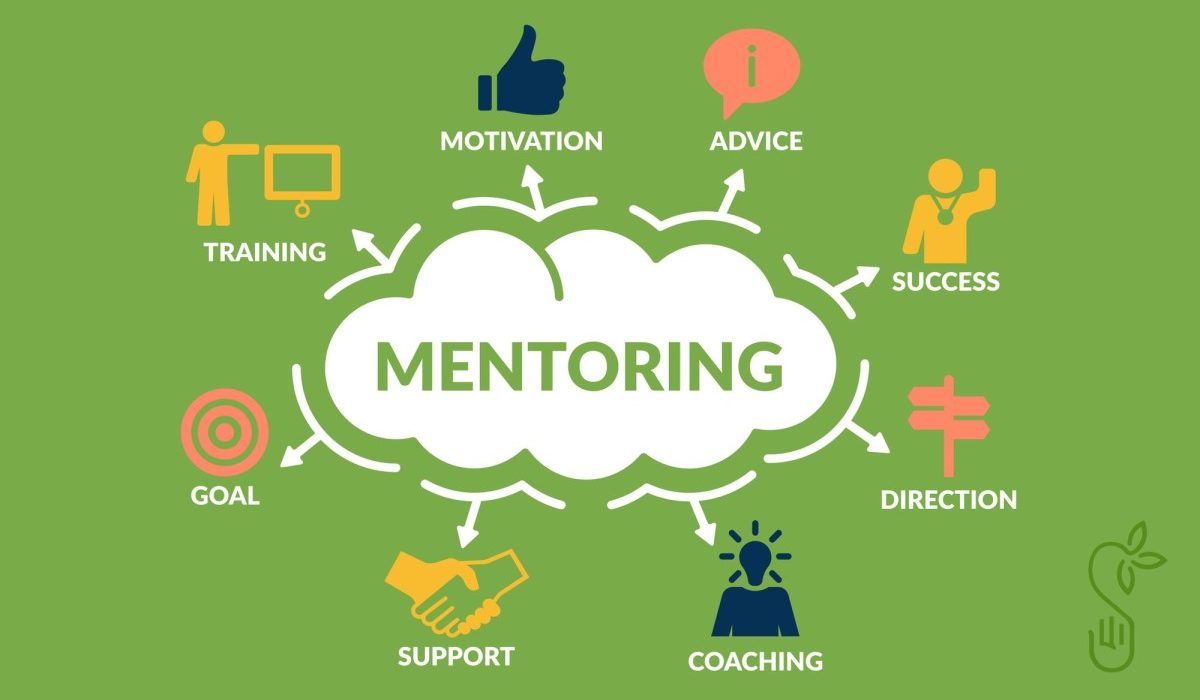The Power of Peer Mentorship in Secondary and Higher Education

In both secondary and higher education, students often face challenges that can hinder their academic success and personal growth. To address these challenges, peer mentorship programs have emerged as a powerful tool for fostering a supportive learning environment. Peer mentorship involves pairing experienced students (mentors) with less experienced students (mentees) to offer guidance, share knowledge, and provide emotional support. This collaborative learning approach has proven to be beneficial in many educational settings, helping students navigate academic pressures, develop life skills, and build confidence.
What is Peer Mentorship?
Peer mentorship is a relationship in which a more experienced or senior student (mentor) supports a less experienced or junior student (mentee). These relationships are built on mutual respect, trust, and a shared goal of enhancing the academic and personal growth of the mentee. Peer mentors typically offer advice, guidance, and support on academic challenges, personal development, and navigating school or university life. Unlike traditional teaching or tutoring, peer mentorship often involves a more informal and empathetic approach, creating an environment where mentees feel comfortable and understood.
The Benefits of Peer Mentorship in Education
- Academic Success and Support:
Peer mentors help mentees navigate the academic environment, offering advice on studying techniques, time management, and understanding course material. Having a mentor can improve a student’s academic performance by providing guidance on assignments, exam preparation, and academic challenges. The mentor’s support can also encourage the mentee to stay on track with their studies, boosting motivation and confidence. - Emotional and Social Support:
Transitioning into secondary or higher education can be overwhelming. Peer mentors provide emotional support, which is especially important in the face of academic stress, social challenges, or personal difficulties. By having a mentor, students feel more connected to their school or university community and less isolated, fostering a sense of belonging. - Improved Self-Confidence:
For both mentors and mentees, the peer mentorship relationship can have a profound impact on self-confidence. Mentees gain confidence in their academic abilities and personal development, as they receive positive feedback and guidance from a peer. Mentors, on the other hand, develop leadership, communication, and problem-solving skills, which contribute to their own personal growth and sense of accomplishment. - Fostering Collaborative Learning:
Peer mentorship encourages a collaborative learning environment where both mentors and mentees engage in two-way learning. Mentors gain new perspectives on course material by explaining concepts in a way that is understandable to their mentees. Mentees, in turn, develop deeper insights as they have their questions answered and are guided through the learning process. This exchange of knowledge fosters a stronger sense of community and cooperation among students. - Increased Retention and Engagement:
In many educational institutions, peer mentorship programs have been linked to higher retention rates. Students who have strong support systems, including peer mentors, are more likely to persist in their studies and stay engaged with their education. This can be especially important in higher education, where students often face the challenge of adjusting to independent learning and balancing academic demands. - Developing Leadership Skills:
Being a peer mentor is not only beneficial for the mentee but also for the mentor. Peer mentors develop essential leadership skills, such as active listening, empathy, problem-solving, and effective communication. These skills are not only valuable in an academic setting but also in professional environments. By guiding and supporting others, mentors learn how to lead with empathy and responsibility, preparing them for future leadership roles.
The Role of Peer Mentorship in Secondary Education
In secondary schools, peer mentorship can play a crucial role in easing the transition between grades and helping students cope with the academic and social pressures that come with adolescence. Students transitioning from middle school to high school often face significant challenges, such as adapting to a larger school environment, managing more complex coursework, and adjusting to new social dynamics. Peer mentorship can provide younger students with guidance on how to navigate these challenges, offering advice on managing stress, making friends, and staying organized.
Additionally, peer mentorship in secondary education fosters a culture of cooperation and empathy. Older students who act as mentors can model positive behaviors for younger students, promoting good study habits, conflict resolution skills, and inclusivity. This helps create a supportive school culture where students are not just focused on academic success but also on social-emotional well-being.
The Role of Peer Mentorship in Higher Education
In higher education, peer mentorship becomes even more significant, as students face the pressures of academic rigor, financial challenges, and personal growth in an increasingly independent environment. Peer mentors in universities can guide incoming freshmen or transfer students through the complexities of university life, from navigating campus resources to understanding course requirements.
Peer mentorship programs in higher education often focus on academic achievement, social adjustment, and career development. Mentors can offer valuable insights into managing heavy course loads, getting involved in extracurricular activities, and even finding internships or career opportunities. This support can be invaluable as students try to balance academics, social life, and personal responsibilities.
Mentorship programs in higher education also encourage diversity and inclusivity. Many universities use peer mentorship to help underrepresented groups, such as first-generation college students, international students, or students from diverse backgrounds, to adjust to university life. These programs provide a platform for students to share their experiences and connect with others who may have similar challenges.
Challenges of Peer Mentorship Programs
While peer mentorship offers numerous benefits, there are challenges to implementing successful programs:
- Training Mentors: For peer mentorship to be effective, mentors need to be properly trained. Without training, mentors may not have the necessary skills to guide their mentees effectively, which could lead to unproductive or even harmful relationships.
- Time Commitment: Both mentors and mentees may struggle with the time commitment required for successful mentorship. Finding a balance between academic responsibilities, extracurricular activities, and personal life can be challenging, especially for busy students.
- Matching Mentees and Mentors: Ensuring that mentors and mentees are well-matched is key to a successful mentorship relationship. This requires a thoughtful approach to pairing students based on personality, academic interests, and goals.
- Sustainability: Some peer mentorship programs may struggle with long-term sustainability due to lack of resources or institutional support. Ensuring that these programs are adequately funded and supported by the institution is crucial for their success.
Conclusion
Peer mentorship is a powerful tool for enhancing the educational experience in both secondary and higher education. By fostering academic success, emotional support, and personal growth, peer mentorship creates a more inclusive and engaging learning environment. As students help one another navigate the challenges of education, they build a stronger sense of community and develop valuable life skills. As educational institutions continue to recognize the importance of peer mentorship, these programs will likely become an integral part of the academic experience, empowering students to thrive both inside and outside the classroom.









